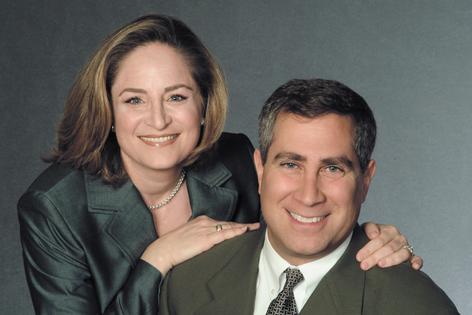First-time buyer seeks advice regarding offer strategy
Q: First-time homebuyer here. I just finished reading your “100 Questions Every First-Time Home Buyer Should Ask” book, and I sure took lots of notes! It’s super fun when real estate rules change as you are learning them. So I have a question.
What’s the deal with the new National Association of Realtors ruling on how buyers now sign agreements with their buyers agents? I’m mostly wondering what my strategy should be. Do I sign the agreement promising them 2%, whether it’s from my pocket or not, and then hope the seller agrees to pay it?
A: Thanks for your question. It’s tough to be a first-time buyer — or any buyer — today. Especially if you’re going it alone.
With the new rules around commissions, buyers, sellers and even agents seem confused about who pays for what. From our perspective, there hasn’t been meaningful change at all. Although, it’s uncertain what meaningful change looks like.
A first-time buyer in Chicago saw a condo advertised on a website run by a publicly traded real estate brokerage. The buyer and their parents went to see the condo and liked it. The condo was listed by the real estate company. They worked with a real estate attorney to put together an offer, which was negotiated back and forth.
Let’s say the buyer purchases this unit. They represented themselves (with the help of the attorney) and negotiated for themselves. There’s no buyer’s agent commission to pay. What about the seller? Did their listing agreement say that they would pay 2.5% of the sales price if the buyer was unagented? Or, does the listing agreement say that the commission is 5% or 6%, no matter whether the buyer has a broker.
The whole premise behind the National Association of Realtors’ settlement agreement is that sellers will pay less commission because it’s all negotiable and buyers will be responsible for their share of the commission. Never mind that the buyer is bringing all the money to the table.
The logic behind the case says the seller will only pay “half” the commission, so they’ll be more willing to negotiate down the price of the property, making it more affordable.
Right. If you believe that the listing agreement says the agent will take only half if the buyer has representation or that sellers will just lower the price of their property because they’re paying less commission, then we’ve got a bridge you might be interested in buying. If the idea was to give sellers more “leverage” in commission negotiations with their agents, that’s a maybe. We don’t think that’s happening either. (Maybe down the road, but not right now.)
How do we know? What we’re hearing is anecdotal. It’s too soon to have any big data. But we do have some personal insight. We’re selling Ilyce’s late mother’s condo in Chicago. The listing agent has been in the business a long time and was a close friend of her mother’s.
Our listing agreement — which predates the settlement agreement changes — says we’ll pay the full commission (yes, we agreed on what we thought was fair) to the listing agent. If a buyer brings an agent to the process, the listing agent will share the commission equally with the buyer’s agent. If not, the listing agent will keep a lesser but more than half of the full commission.
What’s changed is that the local multiple listing service (MLS) doesn’t say anything about commission sharing. Neither does the brokerage company’s website, since they were part of the settlement agreement. You have to go to the agent’s own website to see the commission split. So, instead of being upfront about it, real estate brokerage companies are less visibly putting commission-sharing information out there.
For people who buy and sell a lot of real estate, none of this is a problem. But we worry about first-time buyers who don’t know any better. People like you who may not understand the ins and outs of the Realtors settlement agreement. Who decide to make an offer without having their own agent because they don’t realize the financial disadvantages of not having one. Or decide they can’t front the 2.5% commission, and don’t want to pay interest on the commission if they fold it into their financing.
Or sellers who don’t realize they can negotiate a half commission into the listing agreement if the buyer brings their own broker or agent with them. Having said that, what we are seeing is listing agreements that state that the seller will pay the listing agent a 3% commission on the sale of the property along with the seller agreeing to also pay the buyer’s agent a similar commission.
On the flip side, we’re seeing buyers sign agreements with their buyer’s real estate agents agreeing to pay the agent a 2% to 3% commission when the buyer purchases a home with that agent. The agreement also references that if the seller does not agree to pay the commission to the buyer’s agent, the buyer would then pay the fee.
Separately, we can imagine a deal where the seller negotiates a 5% commission that isn’t required to be split, while the buyer retains an agent and signs a contract committing to a 2.5% commission. That adds up to 7.5% in total commissions owed in the hottest real estate market in recent history.
Back to your question on what your strategy should be. We think you have to talk with your agent before you sign any agent agreement to understand what’s going on in the area regarding commissions. You can be very clear about only seeing properties where the seller’s agent has agreed to share commission dollars. But we worry that this will seriously limit the number of homes you can see. And, in a hot market, that might mean the difference between finding the right home or not finding anything you like.
When you talk to the agent, be clear that you don’t have unlimited funds. Like all first-time buyers, you’re watching every penny. Make sure they understand you want the commission split and that if it won’t be then you’ll take that into consideration when preparing your offer. See what the agent says and how things are working in their area. Our guess is that nothing has really changed and the agents will share commissions as before, but that won’t be advertised on the MLS or on the brokerage website.
Take a close and careful look at what the agreement your real estate agent gives you says about how and when they get paid. If you don’t buy a place, you shouldn’t pay anything. And, if you should understand how long the agreement lasts with your agent and whether it only applies to properties you see with that agent.
========
(Ilyce Glink is the author of “100 Questions Every First-Time Home Buyer Should Ask” (4th Edition). She is also the CEO of Best Money Moves, a financial wellness technology company. Samuel J. Tamkin is a Chicago-based real estate attorney. Contact Ilyce and Sam through her website, ThinkGlink.com.)
©2024 Ilyce R. Glink and Samuel J. Tamkin. Distributed by Tribune Content Agency, LLC.

































Comments